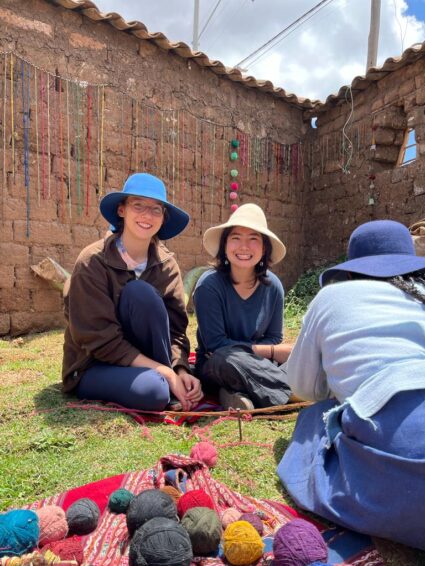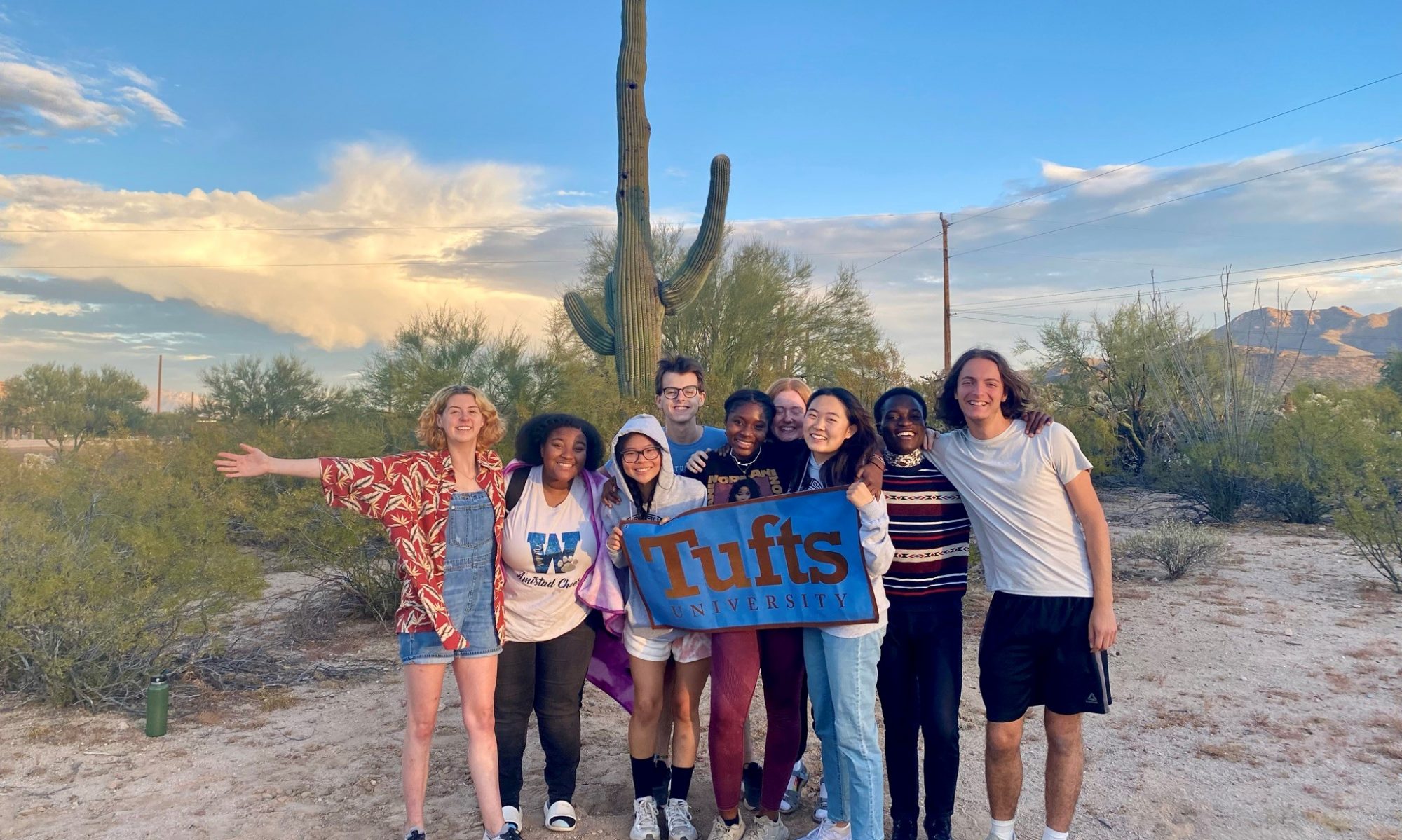by Iris, Civic Semester Participant



After a forty-minute drive (and a slight detour when we walked right past the bus depot), we arrived at Tika, a women’s weaving co-op. The outside of the building is unassuming – located on the side of a large road, the only thing that identifies it as extraordinary are the colored tassels hanging from the doorway.
Inside is a different story. As we enter, we are greeted by stacks and stacks of fabric in every color, pattern, size, and shape you can imagine. Along one wall are tablecloths and shawls; another holds thick, soft sweaters made of alpaca wool; tables are lined with intricately woven bracelets and wallets; hats and bags hang from hooks on the ceiling. We walk upstairs, where we meet Lupe, one of the women who works at this organization. We learn about different natural dyes (did you know that there are bugs called cochineal that can be used to make almost 10 different shades of red?), and then we learn to make Kipus. We tie brightly colored rope in specific knots to signify numbers and dates of significance in our lives. Lupe explains that the meaning of the Kipus was lost for a long time and an Archeologist came to where they lived and taught them about it. This is something that we’ve seen a lot of in the Sacred Valley – the traditions of the indigenous people were so thoroughly demolished during colonialism that they didn’t get the chance to be passed down from generation to generation. Instead, scholars (often Westerners) have had to relearn and then teach Peruvians their own traditions. This dynamic is complicated and more nuanced than I can properly dig into, but important in understanding Tika as an organization.
She shows us how to make yarn from alpaca wool, holding a spindle in one hand that she spins effortlessly between two fingers, switching quickly to thinning out the wool so that it spools easily into a perfect bundle. Once the spindle is full she does something magical that makes it reset. She hands it off to us to try, but all we can manage is a pointlessly spinning spindle and a couple of broken pieces of thread (she magically fixes this, too).
I’ve learned about so many skills over the past month and a half that I never really considered before. In America most of us are completely insulated inside a bubble of office jobs and machine assembly lines, making us forget that for most of time humans have done things by hand. Here in Urubamba, there is no distance from creation – nearly everything that we have is made or grown by hand, by locals. There is so little separation from the producer to the seller to the consumer. I’m not sure I’ve ever thought about how yarn is made before coming here, but now I walk through the market and see people absent-mindedly working the thread through their hands as they go about their days. I love that my eyes are being opened to the details of life and that I’m thinking more about how things are made.
I am wary of over-romanticizing Peru, but also want to reject the narrative that these people make our lives seem ‘lucky’ by comparison. Instead, I’m trying to let it just be: life is different here, but life is and will always just be life. And I will go home knowing what it takes to make yarn by hand, and maybe that will change things and maybe it won’t. What I want to hold on to more than anything else is the universality of personhood. I am often tempted to assign meaning to everything: I saw a woman use a spindle to create thread from fur, and it struck a chord in me. What does it mean? Where’s the metaphor? So we’re separated from the means of production, and being closer to it doesn’t solve all our problems. What then? What do I want to say about this?
But I’m not sure I want to keep assigning meaning to people’s everyday lives. Or, rather, I want to assign everyone’s lives the same meaning, which is that it’s a life, and it’s valuable and interesting and rich and complex just for that, and the thread in her hands can just stay thread.
